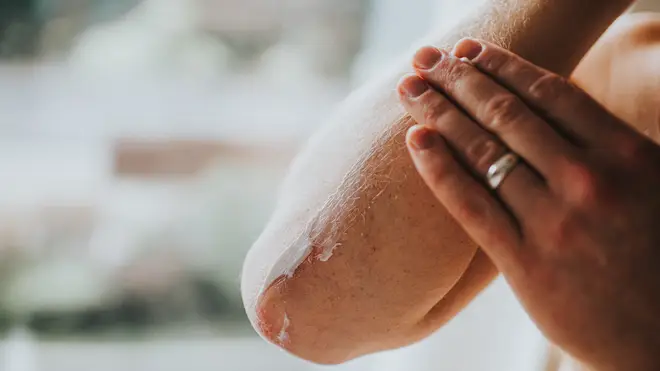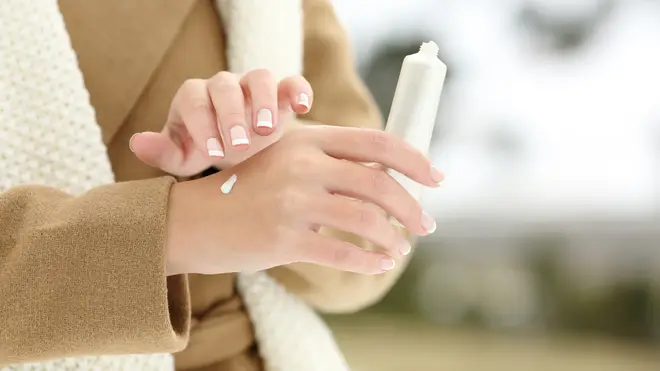Experts reveal 5 tips to help psoriasis in the cold weather
21 January 2021, 16:04 | Updated: 22 January 2021, 14:06

Many people with psoriasis suffer worsened symptoms in the cold, dry air of winter.
As we enter the coldest months of the year, those suffering from psoriasis might find their skin has become even more dry and uncomfortable.
And with cold walks and increased hand washing encouraged, this can cause winter skin havoc.
While it is important for psoriasis sufferers to make an appointment with their GP to create a treatment plan, we’ve spoken to skin experts to find out what else you can do to help your skin this winter.
1. Drink plenty of water
According to Nutritionalist at Pulse Light Clinic, Lisa Borg, Psoriasis is a chronic skin condition where cells in the skin’s surface divide too quickly.

This gives the appearance of red areas of skin covered in fine silvery scales known as lesions, which can be sore and itchy.
While psoriasis can have particularly bad flare-ups and times of remission, Lisa says water is essential to keep your skin healthy all year round and aids in the detoxification processes.
She advises drinking at least two litres of water daily.
Read More: 6 things you need to know about polycystic ovary syndrome
2. Carry moisturiser
Dr Ross Perry, who is the Medical Director of Cosmedics skin clinics, advises those who suffer with dry skin conditions should apply suitable moisturiser frequently throughout the day.
There are plenty of moisturisers that don’t contain fragrances or chemical emulsifiers which could irritate the skin.

According to Healthline.com, ingredients such as aloe vera, jojoba, zinc pyrithione, capsaicin and glycerin can help.
Your GP can also prescribe topical creams which can be applied to the skin to ease symptoms.
3. Increase vitamins
Pulse Light Clinic Nutritionalist Lisa Borg says that increasing some vitamins and nutrients can help the skin recover.
She says: “Vitamin A is required for the maintenance and repair of skin and protects the skin tissue from free radical damage."
Food sources of Vitamin A include oily fish, eggs.
Increasing Vitamin E, Vitamin D and Zinc could also help.

Elderly couple who became TikTok superstars will keep dancing 'as long as they possibly can'
4. Try to de-stress
It’s a tough time for all of us, and research shows that stress can be a major factor in psoriasis flare ups.
Lisa suggests relaxation techniques such physical exercise and meditation can be used to try and relieve some anxiety.
5. Bathe in Epsom salts
Dr Ross Perry, Medical Director of Cosmedics skin clinics, says baths will be more soothing than hot showers, as these can remove moisture from your skin.
Soaking in Epsom salts in a warm bath for around 15 minutes can ease itching and also help you to unwind.
This can be done once or twice a week, and you should pat yourself dry afterwards, not rub.
It is important to speak to your doctor about your psoriasis symptoms so you can be advised on the best treatment, your GP may also refer you to a skin specialist.
You can read more about causes and treatments for psoriasis on the NHS website HERE.
Now Read: 8 things you should know before having laser hair removal






























